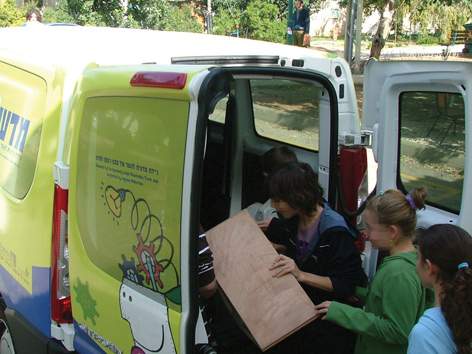Are you a journalist? Please sign up here for our press releases
Subscribe to our monthly newsletter:


Thousands of residents of Israel's southern communities accepted the invitation of the Davidson Institute of Science Education and Weizmann Institute of Science to participate in a variety of educational activities, offered to them free of charge, to help them disconnect for a few hours from the barrage of rockets being aimed at their cities from Gaza during the recent conflict. The guests – who arrived from cities, small development towns, settlements and kibbutzim – attended lectures and participated in scientific demonstrations and experiments. In addition, they were taken on tours organized by the Clore Garden of Science, the Davidson Institute research labs, the Chaim Weizmann House, the Visitors Center and "Havayeda Teva" – Perach's interactive science centers in Rehovot, Holon and Be'er Sheva, which hosted about 3,000 additional children and students. "We have been working around the clock to ensure that activities are suited to the visitors according to their needs and requests, helping them get the most out of the range of experiences on offer to them," says Dr. Marcel Frailich, who coordinated all the activities. She was aided by assistants who matched the visitors' interests with the respective Institute departments. Additional bodies – including the Ayalon Institute, the Minkov Museum, the Tnuva Visitors Center and the Israel Guide Dog Center for the Blind – also contributed to this endeavor by providing tours and activities. All these activities were on offer alongside the Institute's usual ongoing calendar of events.
"The Science Mobile instructors – students of the Feinberg Graduate School – present activities that demonstrate different ideas, phenomena and experiments from the world of science," says Dr. Yehuda Ben-Hur, head of the students' activity unit of the Davidson Institute. "The aim of the programs is to help bring the students closer to science and to enrich their scientific knowledge through hands-on experience."